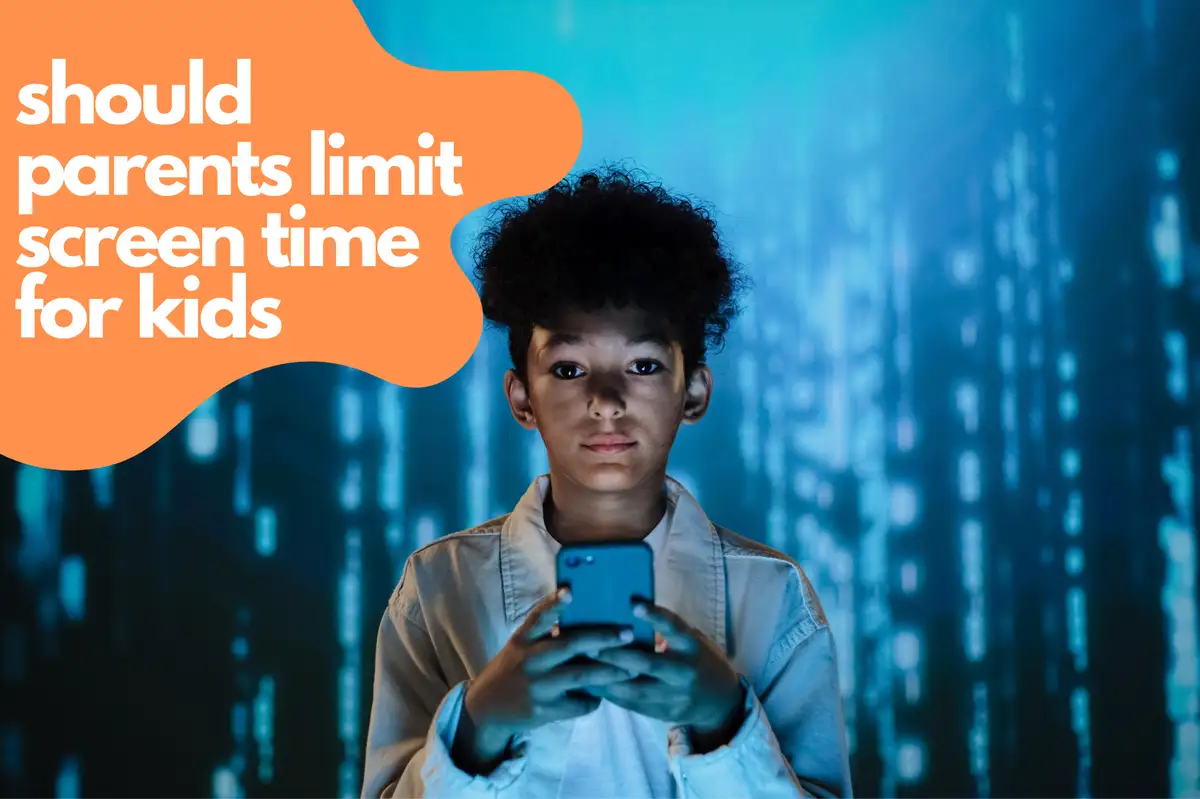Defining Screen Time
Screen time has become an integral part of our daily lives. For children, interaction with screens begins at a young age, and the debate on whether parents should limit screen time for kids has gained considerable attention. In this article, we will explore the arguments for and against limiting screen time and provide a balanced perspective on the issue. Screen time refers to the amount of time spent interacting with electronic devices, such as smartphones, tablets, computers, and televisions. It encompasses various activities, including watching videos, playing games, browsing the internet, and engaging in social media. As technology continues to evolve, understanding the effects of screen time on children's development has become increasingly crucial for parents and educators.Arguments for Limiting Screen Time
Impact on Physical Health
Sedentary Lifestyle
Excessive screen time has been associated with a sedentary lifestyle, which can lead to various health problems in children. Prolonged sitting can result in obesity, poor posture, and increased risk of developing type 2 diabetes and cardiovascular diseases. By limiting screen time, parents can encourage their kids to engage in physical activities and develop healthier habits.Sleep Disruption
Exposure to screens, particularly before bedtime, can disrupt children's sleep patterns. The blue light emitted by electronic devices interferes with the production of melatonin, a hormone that regulates sleep. Insufficient sleep can negatively affect children's mood, memory, and learning abilities. Establishing a limit on screen time, especially at night, can help promote better sleep hygiene.Impact on Mental Health
Anxiety and Depression
Research has shown that excessive screen time can contribute to increased levels of anxiety and depression in children. Social media platforms, in particular, can lead to feelings of inadequacy and low self-esteem as kids compare themselves to their peers. By setting limits on screen time, parents can help reduce the risk of mental health issues in their children.Attention and Focus
Studies have found that excessive screen time can negatively impact children's attention span and focus. Multitasking and constant exposure to stimuli can lead to a decreased ability to concentrate on a single task. Limiting screen time can encourage children to develop better attention and focus skills, which are essential for academic success and overall cognitive development.Impact on Social Skills
Excessive screen time can hinder the development of essential social skills in children. Face-to-face interaction is crucial for learning how to communicate effectively, empathize with others, and navigate complex social situations. By limiting screen time, parents can encourage their children to engage in more interpersonal interactions, fostering the development of healthy social skills.Impact on Academic Performance
There is a growing body of evidence suggesting that excessive screen time can negatively affect academic performance. Children who spend more time in front of screens may have less time and energy to devote to homework, studying and other educational activities. By setting boundaries on screen time, parents can help their children prioritize their academics and develop a strong foundation for future success.Arguments Against Limiting Screen Time

Benefits of Technology
Educational Resources
Technology offers a wealth of educational resources that can benefit children's learning and development. Online platforms provide access to information, interactive lessons, and educational games that can supplement traditional classroom instruction. By setting appropriate screen time limits and guiding their children toward high-quality content, parents can harness the potential of technology to enhance their kids' education.Developing Digital Skills
In our increasingly digital world, it's essential for children to develop the necessary digital skills to navigate and succeed in the future job market. Limiting screen time without considering the quality of the content may hinder the development of these crucial skills. Instead, parents can focus on striking a balance between screen time and other activities while encouraging the use of technology for learning and skill-building.Parental Involvement and Balance
A blanket approach to limiting screen time may not be the most effective strategy. Parental involvement and open communication play a crucial role in fostering a healthy relationship with technology. By understanding their children's interests and needs, parents can help guide them toward meaningful and constructive screen time experiences. Encouraging a balanced approach to technology use, along with promoting physical activity, social interaction, and academic pursuits, can help children thrive in a digital world. The debate on whether parents should limit screen time for kids is complex, with valid arguments on both sides. While excessive screen time can have negative impacts on children's physical and mental health, academic performance, and social skills, technology also offers valuable educational resources and opportunities to develop essential digital skills. The key lies in finding the right balance and promoting responsible screen time habits. Parental involvement, open communication, and a focus on quality content can help ensure that children have a healthy relationship with technology.A Leading Parental Control Platform
Avosmart is one of the world's top parental control platforms that empower parents to monitor and manage their children's screen time for games and websites. With Avosmart, parents can closely track how much time their kids spend on media and set daily limits for apps and websites, as well as create a customized schedule. Parents have the flexibility to combine time limits and schedules. For example, they can set a daily limit of 2 hours, but only allow access between 4 PM and 8 PM when they are at home to supervise their children's online activities. This added layer of control ensures that children engage with digital media responsibly and under parental guidance. Additionally, Avosmart enables parents to block access to devices during nighttime hours, ensuring that children are not using electronics during sleep time. Incorporating Avosmart into your family's digital routine can be an effective way to manage screen time and promote healthy habits for your children.Frequently Asked Questions
What is the recommended amount of screen time for children?
The American Academy of Pediatrics recommends the following guidelines for screen time:- For children younger than 18 months, avoid the use of screen media except for video chatting.
- For children 18 to 24 months, parents should choose high-quality programming and watch it with their children to help them understand what they're seeing.
- For children 2 to 5 years, limit screen use to 1 hour per day of high-quality programs.
- For children 6 years and older, establish consistent limits on the time spent using media and ensure that media does not interfere with sleep, physical activity, and other essential activities.

